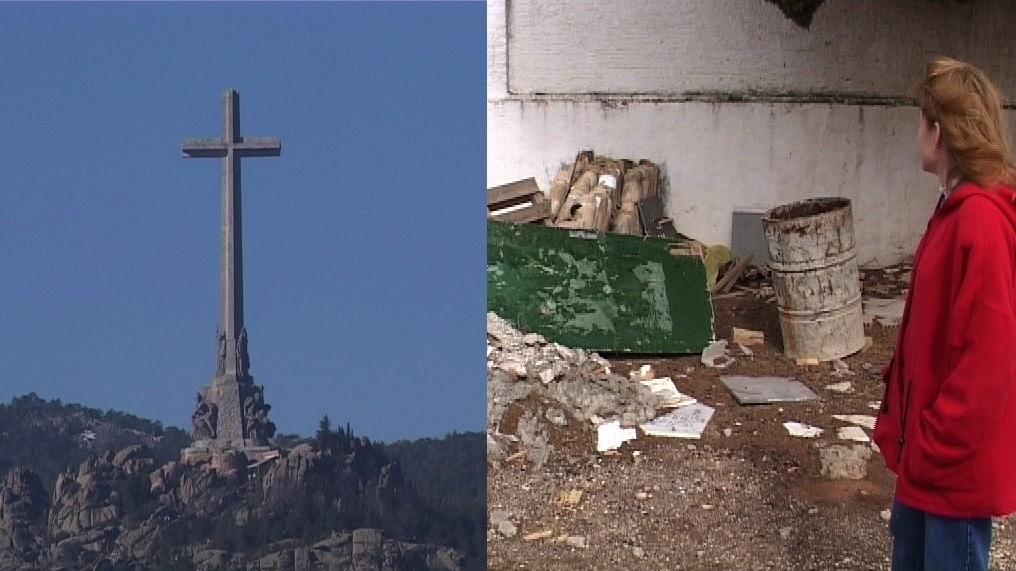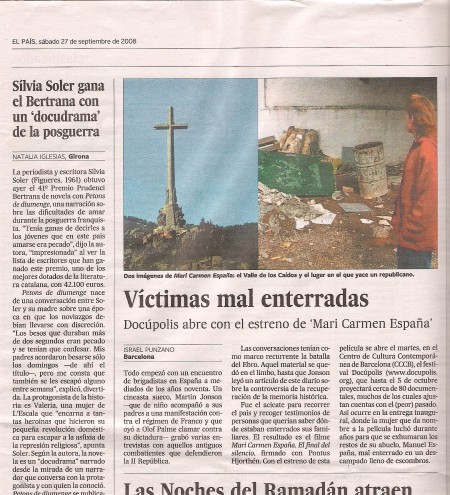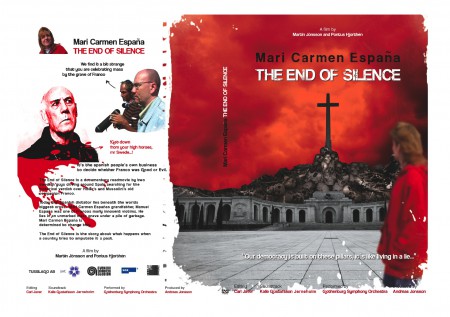ABOUT Mari-Carmen España: the end of silence By Helen Graham:
This is the perfect classroom event: a road-movie documentary with scintillating twenty first-century production values that also respects the ‘old-fashioned’ ones of historical context and investigative rigor. In Mari-Carmen the history of Spain’s difficult past and lengthy coming-to-terms is told as a luminous detective story about one real life. What is complex is thus made accessible, but never simplistic. My students were utterly compelled by it; in great part because of the endearing presence of the film-makers, Martin Jönsson and Pontus Hjorthén. Their investigative odyssey quickly draws the viewer in, while their gentle humour and quirky intelligence provide the perfect foil for a sombre subject.
Mari-Carmen herself is the ‘grandchild’s gaze’, a walking lesson in civics whose power and presence lie in her instinctive understanding that the work of uncovering the past is not only a debt paid to her extra-judicially murdered grandfather, but also a restorative act through which Spain’s democracy today is enacted and reinforced. Indeed, Mari-Carmen’s journey vividly depicts something we forget at our peril: that democracy is neither passively possessed nor indeed secure, unless we engage in ‘doing’ it as an everyday, inclusive practice. The very making of the documentary is an example of this practice. It exemplifies the quest to name the ‘disappeared’, to recognise those traduced by the state, thereby enacting a form of civic solidarity across time.
.
Innovative and stylish as a film, Mari-Carmen’s arresting depiction of history in dialogue with the present connects immediately with its audience. It is state-of-the-art documentary-making that understands perfectly that the medium is the message. These innovative qualities, plus its rigor, explain why we’ll be using it at RHUL on our new Public History MA. . Highly recommended. It’s documentary dynamite!
Helen Graham, Royal Holloway University of London
July 2009


